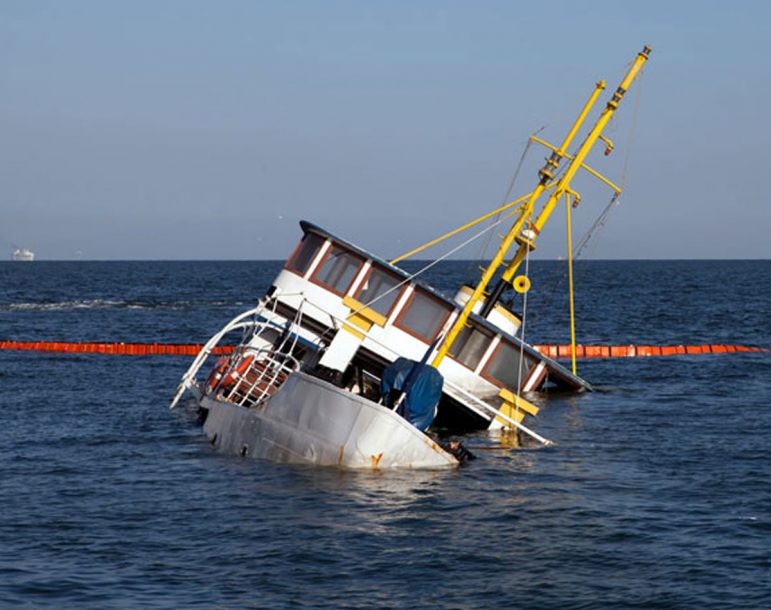Whether you’re fishing offshore or just enjoying a quiet afternoon on the lake, the state of Texas offers plenty of recreational areas for boat lovers. Unfortunately, there are dangers while boating. In 2018 alone, the Texas Department of Parks and Wildlife reported 271 boating accidents in the State of Texas. These accidents caused numerous injuries and more than 60 deaths.
If you or a loved one sustains an injury on a private vessel or boat, you may file a claim against the negligent party. Boat accidents can be serious, and you may require extensive rehabilitation and long-term care to recover from your injuries. The Personal Injury Lawyers at PMR Law can help you obtain the compensation you deserve after a boat accident.
Common Causes of Boat Accidents
The most common types of boat accidents in Texas involve recreational boats and vessels, such as motorboats, jet skis, and water skis. Injuries and accidents can occur in multiple ways, including the following:
-Rollovers
-Sinking or flooding of boats
-Passengers without life jackets
-Passengers falling overboard
-Boats colliding with other boats
-Boats that collide with other structures such as piers, buoys or docks
-Ships that catch fire
-Explosions on ships
Although a boat accident can occur at any time, many occur as a result of mistakes made by the operator or because of navigating under the influence of alcohol or drugs. In fact, 85% of all boat and boat fatalities occur simply because operators are inexperienced and have not completed a boat safety course. Negligent ship operators may operate recklessly, drive excessively fast, or lack the experience to navigate in bad weather conditions. When alcohol and drugs are included, the result can be fatal.
Limitation of Liability Law for Boat Owners
If you are injured on board a ship, you are entitled to full compensation for injuries and other damages. However, this can be difficult if the owner or charterer of the vessel is covered by the Ship Owner’s Limitation of Liability Act (United States Code No. 46, section 30501 et seq.). This provision limits the owner’s liability to the amount of the value of the ship after an accident. In other words, if the value of the ship is determined to be $ 50,000 after the accident, the owner may not incur a debt of more than $ 50,000 in damages.
In order for owners to qualify for the protection of this law, the vessel must have been in the United States at the time of the accident. In addition, the owner of the vessel must demonstrate that he had no way of knowing that the circumstances that caused the accident would occur. In other words, if negligence causes a risky condition onboard the vessel, the owner would be protected by the Limitation of Liability Law only if he can prove that he had no knowledge or relationship with said condition.
Exceptions for Personal Injury / Death
However, the Boat Owner’s Limitation of Liability Act does not define the total limit for injuries and deaths on board certain vessels. If the value of the ship after a shipwreck fails to cover the costs for all personal injury and wrongful death onboard, the calculation changes to $420 multiplied by the tonnage (weight) of the ship. For example, if a ship has a gross tonnage of 30,000, the liability limitation would increase to $ 12.6 million.
This law does not apply to certain vessels, such as the following:
-Recreational yachts
-Maritime trailers
-Tankers
-Fishing vessels
-Barges
-Cruise Ships
Jones Act
The Federal Statute of the United States Code n. 46, section 883 (better known as the Jones Act), made it easier for seamen to obtain compensation for work injuries. This statute allowed for workers onboard ships to be covered by the Federal Employer Responsibility Law (FELA), which initially only protected railway workers.
Under the Jones Act, the employers of shipboard workers may be required to pay compensation for injuries caused by negligence. The employer will bear responsibility for injuries caused in whole or in part by the negligence of their own, officers, agents or other employees.
This may include faulty equipment or dangerous conditions on board. The employer may still be liable, even if the crew member is injured between shifts (while onboard).
It is important to note that not all crew members will be able to receive compensation for injuries under the Jones Act. The excluded cases can be the following:
-Employees who are part of a consortium – If a crew member benefits from the company (instead of receiving a fixed salary as a crew member), the owner of the ship will not be held responsible for his injuries.
-Volunteer members of the crew – If a yacht crew member is a volunteer and does not receive a salary, the Jones Act will not apply. However, the law will take effect for paid pleasure yacht crew members.
Damages provided for by the Jones Act
Under the Jones Act, a sailor or his family could receive compensation for the following damages:
-Loss of income
-Medical expenses
-Loss of future remuneration
-Funeral expenses
-Loss of social benefits
-Pain and suffering
-Mental anguish
-Association loss
These damages awards can occur in cases of personal injury, wrongful death or acts of survival related to the crew members on board.
Texas Maritime Safety Law
It should be noted that the Boat Owner’s Limitation of Liability Act, the Jones Act, and other provisions established by United States maritime laws, will only take effect if you are more than 12 miles away from the United States shoreline. If you are within 12 nautical miles, Texas civil and criminal law will apply.
As with ground injuries, you can generally obtain compensation for injuries that occur through negligence, gross negligence, recklessness, or willful third-party actions, especially if such actions directly violate Texas law. The Texas Maritime Safety Act (particularly the Texas Parks and Wildlife Code, Title 4, Chapter 31, Subchapter D) considers the following actions in the water to be reckless or negligent:
-Excessive speed
-Create trails or dangerous waves
-Surround another boat or swimmer
-Interfering with markers or ramps posted by the United States or Texas government
-Obstructing the passage of another ship or vessel
-Operate a boat in a restricted area
-Operate a ship in an area reserved for diving
-Operate a boat or vessel during hours between sunset and sunrise
-Operating a boat or boat while intoxicated or under the influence of drugs
There are exceptions to most of these rules if you are trying to rescue a person who sank, fell overboard, or is drowning.
Lawsuits Under the Admiralty Law
If you are injured by or while aboard a United States Government-owned vessel, you can sue for damages under the Admiralty Lawsuits Act (SIAA). This is practically the only exception to the immunity of the United States government against lawsuits. The lawsuit would proceed in the same way as in a lawsuit against a private entity. Among the most frequent defendants in SIAA cases are the following:
-The United States Navy
-The United States Coast Guard
-The United States Army Corps of Engineers
-The National Service of Marine Fisheries
-The National Office of Oceanic and Atmospheric Administration
Contact Our Texas Boat Injury Attorneys
We will be honored to have the opportunity to review your potential maritime injury case. Call PMR Law at 832-667-7700 today to schedule a free and confidential consultation with a personal injury lawyer who will tirelessly fight for your legal rights.
Get in touch with us immediately so we can evaluate your case for free. We are available 24 hours a day, 7 days a week. You can also fill out a form by clicking here.
PMR Law is considered one of the Best Law Firms of America, by Rue Ratings. Several of our attorneys have been given the honor of being named Super Lawyers by Thomson Reuters. The American Institute of Personal Injury Attorneys has named our attorneys 10 Best in Client Satisfaction. Speaking of personal injury, Attorney and Practice Magazine awarded our attorneys with Top 10 Personal Injury Attorney distinctions. The National Trial Lawyers, as well as the American Academy of Attorneys, have named two of our attorneys as Top 40 Under 40. Our attorneys have been recognized as Best Attorneys of America, by Rue Ratings. PMR Law is a proud member of the Multi-Million Dollar Advocate Forum.

